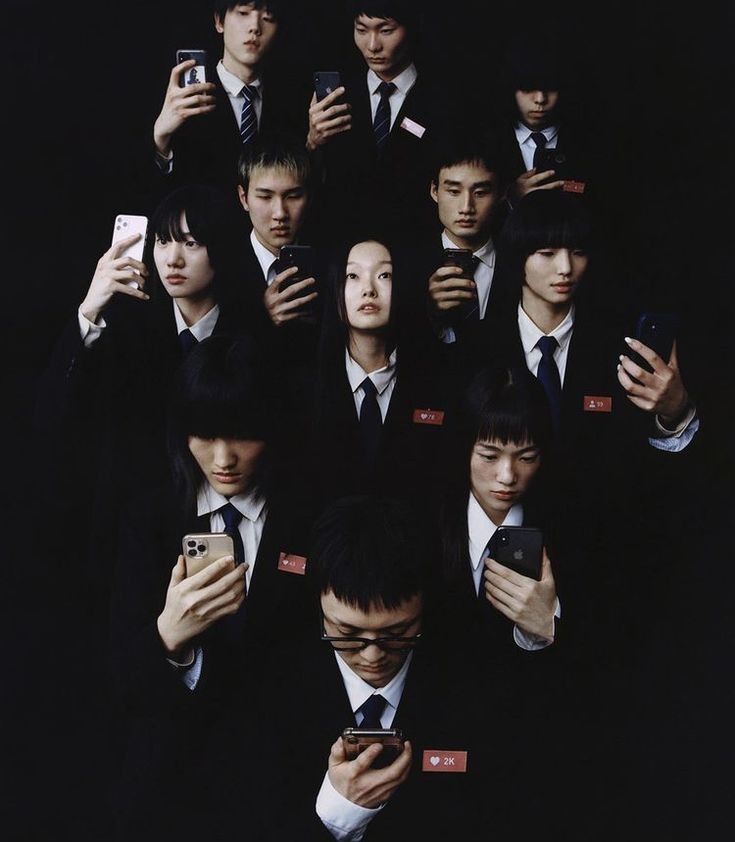It is important to recognize something which most people, especially those who consider themselves well informed, fail to; you don’t know shit about the world. This isn’t a new issue; it’s been this way for the entirety of human history and will likely continue to do so. What is an issue is the fact that many of us think we know things about the world simply because we consume some form of news media. This is inaccurate, dangerous, and a purposeful deception on the part of news media to control your opinion.
I am not the first to write about this, nor the last- nor am I going to write it better than those who already have. I am, however, going to attempt to write it in a way that is easier to access than those who already have, and I am going to attempt to provide a few solutions and tips for basic research ethics that will help you distinguish fact from alternative fact.
The basic ideas are the following:
- ‘Left’ and ‘Right’ may as well not exist.
- News media is not, and never has been, objective.
- The images, videos, and articles which you come across are unlikely to actually reflect reality.
- The slant which is going to be present in the media which you consume is going to affect your opinion, and there are specific strategies used to make that the case.
With that out of the way, allow me to explain exactly what I mean by these points. The first is that it is not useful to consider the slant to be ‘left-leaning’ or ‘right-leaning’ in any meaningful sort of way. This is largely because it is functionally impossible to actually define what political left or right mean. Though we routinely point towards examples and say “That’s left-wing!” or “That’s right-wing!” consider the fact that very, very few people can actually define what ‘left’ or ‘right’ actually mean.
Try it, try to define ‘left-wing’ without reference to something that is known to be left-wing, whether it be a person, a politician, or an ideological movement. Try to do the same with ‘right-wing.’ Try the same with fascism, or socialism, or any political label that is not directly aligned with an economic, material movement. For the majority of people these labels have some kind of emotional currency, but they don’t refer to anything actually tangible that will functionally help you identify what is being said, or the value of it.
Consider, for example, the idea of tariffs to ensure domestic production. At the time of this writing, in April of 2025, Donald Trump has introduced a large quantity of tariffs which are going to affect the United States in a way that is yet to be determined. Today, this is considered to be an exceedingly conservative, right-wing policy due, pretty much entirely, to the rhetoric around it and the person who is introducing it to government. Had the same policy been put into place by, say, a socialist government in Norway with a rhetoric that it was intended to promote local self-sufficiency, make sure that the Norwegian consumer was consuming more goods that were ethically and environmentally manufactured by Inuit communities, or some other bullshit, the move would be considered nearly Communist. This is despite the fact that it would be entirely the same tariffs with the same percentages in every way, the only thing that would have changed is the rhetoric which accompanied it and the person who enshrined it as law.
This is what I mean when I say that these labels, left and right, are not meaningful. They aren’t often about reality, and they aren’t often about fact, they are instead about categorizing things in ways that limit you from questioning the information that you are receiving.
What you can do:
Avoid fully trusting anything which labels itself, or others, vaguely. Look for specific values within a media body and evaluate things with that value judgement in mind. If a website stresses the importance of environmentalism, consider that it is unlikely to positively cover Nestle. If a newspaper talks about war positively, consider that human rights are unlikely to be at the top of its priority list.
Secondly, news media is not objective. Boring does not mean objective, and in fact the supposed objectivity of news media is an active strategy made to make news media seem trustworthy and honest, when it is often neither of those things. Every step, from the ground up, will have inherent biases. The writer of a particular article is going to have biases, the publisher is going to publish some things and not others because they will have a mandate from above, and the owners of any media body will have values which they want to promote, and/or interests which they want to protect.
Pretty much any piece of news media is going to have little things within it which are going to reveal its ideological slant. When a newspaper refers to former Egyptian President Gamal Abdelnasser as President or as Colonel, they intend to evoke within the reader certain thoughts about Gamal Abdelnasser. When CNN releases an article about Bashar al-Assad’s wife shoe shopping during the Syrian Civil War, that is a specific choice and one which serves an agenda, that of delegitimizing Bashar al-Assad. When American news outlets hyperfixate on Ted Cruz liking a pornographic tweet, that is a choice.
This isn’t to say these things aren’t factually true; Abdelnasser was a Colonel in the army before he was President, Bashar’s wife went shoe shopping at a deeply inopportune time, and Ted Cruz likes threesomes, it’s to say that word choice and publication choice are exactly that; choices. Like all choices, it is made for a reason. If you want to properly evaluate the news you are receiving, you should endeavour to know that reason.
What You Can Do:
Trust people who disclose their biases. Not totally, of course; people can lie and even if they aren’t biases are important to keep in mind when considering the information you are receiving. At least, though, you’ll be able to work within a more limited set of options; either these are the person’s values or the person is lying to you and they hold the opposite values. A little bit of reading in between the lines is likely to tell you which one it is. Ask yourself; why do I feel this way? Is it me, or is the writer putting something in the text to try to make me feel this way? Why? What does it serve them?
Thirdly, it’s important to consider that sometimes the news actively lies. Sometimes news bodies lie by omission, sometimes they lie by implication, and sometimes they just lie. News bodies are not always at fault, sources, governments, and writers lie sometimes. This doesn’t mean that the lies are excusable, just that they can also be accidental.
For example, nobody heard about the Uighur people in China until it was politically relevant for them to become mentioned. The sudden outpouring of information when there was previously nothing is a lie by omission. The plight of the Uighur people was not a new, or sudden, discovery. It was something which suddenly became useful to discredit China. This isn’t to defend China’s treatment of these people, but it is to say that your not knowing about them until it was convenient was a choice. Omitting information until it’s useful is dishonest.
These are the hardest to catch, but another, clearer-cut example is that during the American sanctions on Iraq after the first Gulf War the Americans banned the sale of baby formula to the Iraqis. You didn’t know about this because it would be inconvenient for the American government to be labelled as baby-killers, especially since the sanctions continued under separate administrations, both Democratic and Republican. Not knowing about this while being told, at the same time, of Saddam Hussein’s atrocities against the Iraqi population is a lie by omission. The picture is often more complex than it initially appears and there are pretty much never clear-cut good guys and bad guys. Be wary of anyone who suggests that to be the case.
A lie by implication is something like the often-used phrase Hamas-run Health Ministry to refer to the Gazan Ministry of Health. The Gazan Ministry of Health does not, contrary to popular belief, confer a Kalashnikov rifle with each MD diploma. Nor is it too incompetent to count bodies. It is a regular bureaucratic, governmental body which employs Palestinian doctors to manage public health, just like any other ministry of health anywhere else on earth. It would be absolutely ridiculous to call the present American Surgeon General the Republican Surgeon General, or the British Ministry of Health the Labour Ministry of Health.
Since the phrase, ‘Hamas is a US-designated terrorist organization’ follows whatever article is calling the Gazan Ministry of Health the Hamas-run Ministry of Health, these news bodies are implying a whole host of things about the accuracy of the numbers reported, the motivations behind the people doing so, and the competence of the people who are relaying this information. This is a lie by implication.
While we’re on the topic of Palestine and baby-killers, the information shared in the wake of October 7th 2023 about Hamas beheading babies is simply a lie. No proof was ever found or shared, and the accusation has been roundly discredited. The supposed proof was simply the word of Benjamin Netanyahu against that of Hamas. The claim was repeated endlessly, despite its falsity, even by former president Joe Biden, who later clarified that he was not referring to some proof he had seen, but news reports which had the same unverified and unreliable source. Sometimes the news lies. When something seems too useful for its source to be true, or its source is unreliable in general, or it just kind of stinks of something fishy, that should be kept in mind. It may be a lie, and that lie may only be uncovered when its convenience dies down.
What You Can Do:
Check the source. Follow the trail until you get somewhere, then apply the same principles of 1 and 2 to it. Try to evaluate it critically. If in following the trail it ends abruptly or somewhat sketchily, discount the story as a whole. Also, try to double-check what is being told to you if you think it’s important. See if it’s reported on elsewhere and how it’s being reported on. If multiple sources share some info, it’s likelier to be based on fact.
It’s also very important to consider that some newspapers, websites, and sources have better track records with lying than others. It’s not that they never lie, it’s that they do it less. Try to recognize bullshit peddlers and discount them.
Be extra critical whenever you come across news media which specifically uses buzzwords. When you see the same few words echoed through multiple outlets, it’s very likely that these words are being used cynically to make you think about things in a certain way. It is also very, very unlikely that these buzzwords are referring to anything actually true. Common buzzwords include; fascism, communism, DEI, the Frankfurt School, Antisemitism, Cultural Marxism, terrorism, Critical Race Theory, and Nazism among others.
Unsavoury actors bank on your immediate word-association to do a lot of the emotional heavy-lifting for them when using these terms, and others. Oftentimes when some new phrase comes apparently out of the blue, is used by multiple organizations which may, or may not, be owned by the same person, you should be very wary of trusting your initial feelings or, quite importantly, the stories which relate to this.
This is an important part of a larger set of strategies used to hide the hidden agendas of media bodies, whether they are large and well-established or newer and smaller-scale.
What You Can Do:
Consider news stories as part of a pattern, not insular, specific things. Try to look at the whole pattern and what image it’s trying to make for you, and how it’s trying to make you feel. Consider that this is probably purposeful, and ask why this pattern exists in the first place.
Additionally, when a new buzzword comes into play, do your own research. Look at older media which defines that term and what it means or is supposed to mean. It has to be older because the newer stuff is going to be tainted by whatever new word-association is in vogue at the time and is being used to control your opinion.
In line with what I’ve been saying, my biases are the following. I’m an Arab. I believe in Pan-Arabism, though I don’t think it’s really feasible. I have a personal preference towards socialist governments and policies, especially those which prioritise worker’s rights, unions, and environmentalism. I think very rich people should be less rich, and people should be less poor. I have a strong belief in the importance of words and how they’re used. I’m writing this article both because I think it’s important that people think for themselves, and so that my grandma will stop telling me shit that I know isn’t real off some random fucking twitter page.
For those who already have some background in this I would strongly recommend the following three resources; Noam Chompsky’s, Manufacturing Consent; Jean Baudrilliard’s, The Gulf War Has Never Taken Place; and friendlyjordies’ fantastic video, The Worst Sponsor on YouTube.
Congrats! By following these simple rules, you will have taken the first steps towards being media literate. Remember, trust nobody.




